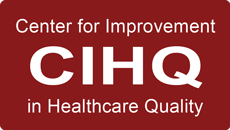
From the title of this blog, you are probably expecting a bucket list of do this, don’t do this, get this ready, hide this, etc. But let’s go a little bit deeper – what truly makes one organization shine during accreditation surveys and another just endure - bruised - but alive? The answer is not as simple as one may think. Organizations that shine have a certain attitude, a mindfulness that helps the organization manage complex medical care and processes while overcoming human fallibility. In other words, organizations that acknowledge that humans make mistakes and then design their systems and processes to limit the likelihood of mistakes, in a word - shine. They do this by identifying where humans are vulnerable to error and error-proof that process; then take advantage of the strengths of their staff to help identify preventable defects and address them immediately. Sound like a lot of high reliability jargon? Well it is – sort of – but you can use it to your advantage for survey readiness.
- Leadership focuses equally on patients and staff. STAFF? Wait - our job is caring for patients. But who cares for the patient? Staff! If you don’t actively care for staff, your patient care will potentially suffer. This has been shown in multiple research studies – positive organizational attitude and culture is inherently intertwined with better patient outcomes and better survey outcomes.
- The environment as a whole should be rooted in trust and respect. Staff must feel safe speaking up about problems and understand they have a responsibility to do so, and know that their concerns will be heard, vetted, and acted on appropriately. Staff see what is wrong, you need to listen. They are at the hub of a successful survey.
- Departments are interconnected. Not just clinical departments; it includes every department and how they function in relation to each other. The best organization empowers a housekeeper to notice if a provider exits a patient room without performing hand hygiene and speak up. And the provider should know that is normal. That is how we roll.
- Expect ownership in staff behavior. Whether your role is a leader, clinician, kitchen staff, facilities engineer, or bedside clinician, there is an expectation for respect and professionalism in every single action. Perfection is elusive and not required; accountability and commitment is.
- Work expectations are standardized and aligned. When people are oriented to standard work from the start, then tasks and activities occur no matter who is charged with them or when staff turnover occurs. When activities and behaviors are codified right from day one; processes are designed in a manner to make it easy to do right and hard to do wrong, the chance for mistakes to occur drops dramatically. Conveying the importance of each role helps people feel more valued and prevents critical tasks from slipping through cracks. This includes allocating reasonable resources and support to staff.
- Goals are defined; reliable metrics are established. Great organizations clearly articulate their goals, make them transparent and measure them daily, weekly, and monthly to create alignment and accountability. The organization is transparent with the progress and the failures. Problems, issues, and defects are viewed as opportunities to improve instead of being hidden. It is like climbing a mountain – the goal is at the top and everyone knows the focus is getting there even if you occasionally slip and slide a few steps backwards in the process.
As Zig Ziglar once said “success occurs when opportunity meets preparation”. While achieving great outcomes takes considerable effort and preparation, the destination is worth the journey. Organizations that get to a place where errors are few and far between, and those that do occur have limited effect, enjoy a culture where respect and empowerment is top priority. Leaders in this type of organization are visible, approachable, humble, involved, and live by example. An organization that commits to these principles…that is how you shine during a survey.
References
Douglas, R. (2022). Accreditation Survey Tips.
Safe & Reliable Healthcare. (2021). The framework for high-reliability healthcare.
Douglas, R. (2022). Accreditation Survey Tips.
Safe & Reliable Healthcare. (2021). The framework for high-reliability healthcare.
